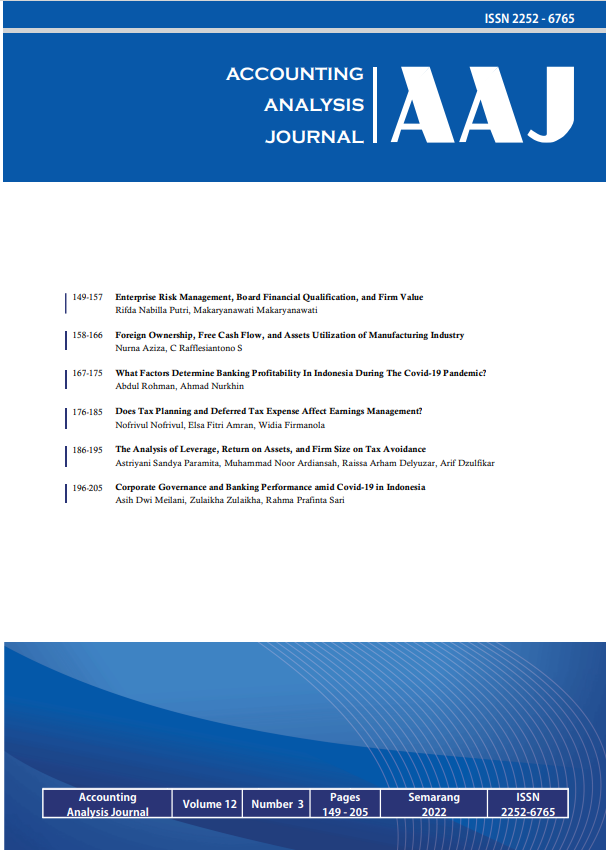Enterprise Risk Management, Board Financial Qualification, and Firm Value
##plugins.themes.academic_pro.article.main##
Abstract
Purpose : The intention of this study is to get empirical evidence regarding the effect of Enterprise Risk Management (ERM) disclosure on firm value and the effect of Board Financial Qualification (BFQ) in moderating Enterprise Risk Management (ERM) on firm value.
Method : This research uses content analysis with 53 samples of financial company sectors, which are banks and insurance companies listed on the Indonesia Stock Exchange during 2020. The analysis technique used is Moderated Regression Analysis (MRA).
Findings : The results show that ERM has a negative effect on firm value. This happens because the disclosure of risk management in banking and insurance companies in Indonesia is an obligation, so investors do not pay attention to the disclosure of risk management as a basis for assessing the company. In addition, this study also proves that BFQ is a variable that is able to moderate the effect of ERM on firm value. The board of directors with a financial education background has better knowledge of risk management thereby strengthening the implementation of ERM in a company.
Novelty : This study using ERM disclosure items based on COSO 2017. While previous research based on COSO 2009.
Keywords : Enterprise Risk Management; Firm Value, Board Financial Qualification; Moderated Regression Analysis (MRA)
